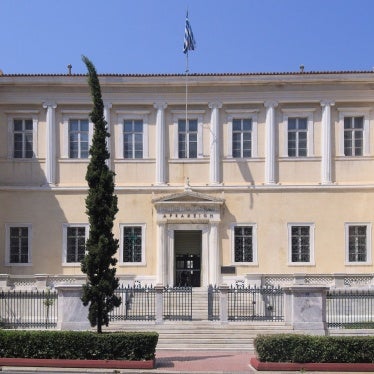Twenty-five years ago, in November 1989, the Berlin Wall fell. Over the course of one weekend, some two million jubilant East Germans breached the Wall and crossed into West Berlin to greet family, friends, and countrymen from whom they had been forcibly separated for more than twenty-eight years. The East German Communist leaders had lost control. Border guards, instructed to shoot anyone trying to cross the wall, held their fire.
The fall of the Wall came to symbolize the monumental year of 1989, when Communism collapsed in six countries whose systems had been considered immutable: Poland, Hungary, East Germany, Czechoslovakia, Bulgaria, and Romania. Hundreds of thousands of demonstrators brought about this change.
Those of us who were privileged to work with the dissident human rights defenders in Eastern Europe remember the high hopes we all had for these new democracies. Having experienced totalitarian control over every aspect of their lives, the new government leaders would surely take care to protect freedom of speech, religion, press, and assembly, and the protection of minorities and dissident voices within their societies. Now, twenty-five years later, is a good time to take stock.
Under Communism, ordinary citizens were denied any contact with the West—whether through travel, telephone, television, radio, or mail. After 1989, their cities were suddenly filled with tourists and entrepreneurs, bringing western music, fashion, food, and consumer goods. Personal computers, fax machines, video players, and cell phones, long considered illegal, were everywhere.
So was corruption, which was endemic under the Communists and rose to new heights when the old rules no longer applied. In the rush to convert to market economies, wily businessmen, many of them former Communists, prospered. Fabulous wealth became concentrated in the hands of a few oligarchs and trickled down to a small, newly formed middle class.
But, deprived of even the meagre economic safety net that Communism provided, many people remain poor. Some express their anger in xenophobia, racism, anti-Semitism, homophobia, and discrimination against migrants and asylum seekers. All too frequently, populist politicians exploit those sentiments.
Viktor Orban, Prime Minister of Hungary, openly states that he wants to end liberal democracy in Hungary, using Putin’s authoritarian Russia and China as his models. He has promoted constitutional changes and laws aimed at keeping his party in power and enabling discrimination against women, the homeless, people with disabilities, and lesbian, gay, bisexual, and transgender people. Following Moscow’s example, nongovernmental organizations in Hungary that receive foreign funding are classified as “foreign agents.” The government has clamped down severely on the media through the Media Council, whose president is directly appointed by the President of the Republic at the suggestion of Mr. Orban.
In Romania and Bulgaria, the two poorest countries in the European Union, democracy hangs by a weak thread. In both countries, the revolutions against Communism were stolen from the people even as they were taking place, with former Communists taking control. There is widespread discrimination against Roma in both countries, and Bulgaria has been guilty of forcibly expelling Syrian, Afghan, and other asylum seekers. Activists and journalists in Bulgaria were violently beaten by police in July 2013 in front of the parliament where protests were being held. Romania has been beset by internecine warfare between political leaders, so severe that western leaders have voiced concern about Romania’s commitment to the rule of law.
There are also some bright spots. The Czech Republic and Poland are functioning democracies with solid democratic institutions and sound economies. But the party systems in these countries are still relatively unstable and there is a need for more pluralism and transparency. In July 2014, the European Court of Human Rights found Poland complicit with the CIA in the secret rendition, detention, and torture of terrorism suspects. The Czech Republic was badly shaken by a sordid corruption scandal in 2013: former Prime Minister Petr Necas, his chief of staff/mistress, and eight officials were found guilty of bribery, abuse of office, and illegal wiretaps.
At a time when much of the world does not even pay lip service to democratic values, it would be a great disaster if countries in the heart of Europe were to turn away from such values and establish authoritarian regimes.
It would help if the United States government would make its actions match its rhetoric on human rights. Abu Ghraib, Guantanamo, NSA surveillance, and Ferguson do not attract anyone to the ideals of democracy and fundamental freedoms.
The European Union’s role is perhaps even more critical. It has tools at its disposal—legal enforcement action, suspending voting rights, or ending economic support—to pressure these once Communist countries—now EU member states—to respect human rights. It should use them.








